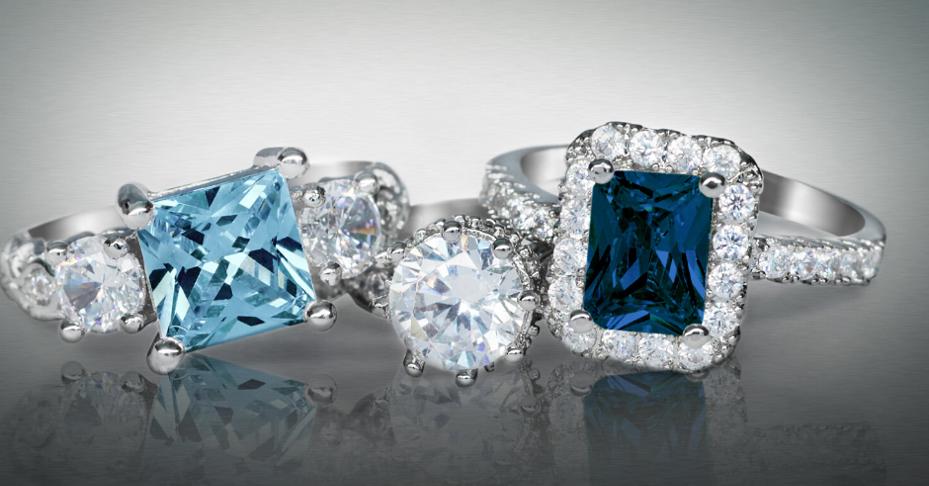Is it time to update your jewellery insurance valuation?
Is it time to update your jewellery insurance valuation?

The new year is a great time to get things organised and to make sure your most precious items are properly protected - especially any new gifts you may have received over Christmas. Here is an expert update on jewellery valuations from James Lowe, watch and jewellery specialist from our partner Doerr Dallas Valuations.
We have chosen four items of jewellery from four of the top manufacturing brands – items that have been in production virtually unchanged for nearly 20 years – unchanged that is except for the price!!
The price of gold in 2003 was about $450 per ounce and it’s about $1510 per ounce today having peaked around 2012 at $1750 per ounce – so the roughly 350% rise in bullion price over the period in question is a price increase factor but a surprisingly small one in gem set pieces like these. The Cartier ring is quite a chunky piece, but its basic bullion value today is probably about £400 as opposed to approximately £125 in 2003. OK, the VAT rate has risen from 17.5% to 20% in the same period but again that’s had a pretty small effect on the retail price, so that leaves gem stone prices, manufacturing costs and retail profit mark ups as the main ‘culprits’ for the 2.5/3 times price increases.
Diamond prices for good commercial grade stones which these top manufacturing brands would use have largely stalled over the past few years; it’s only the highest quality and rare coloured stones which hit the headlines with their huge prices. And we’re all waiting to see what the effect on retail prices will be when the full impact of the introduction of synthetic diamonds is felt. Also to be taken into account is the effect that internet has had on diamond prices. There are numerous well-established and reliable web sites making available to all millions of unmounted stones at basically ‘trade prices’(plus VAT) and most with recognised laboratory certificates. The ‘closed shop’ trade only which has prevailed in the jewellery business for centuries is breaking down. The coloured stone market is swamped with cheap, very heavily treated and colour enhanced rubies, sapphires and emeralds that come mainly from the Far East. Another factor is the huge increase in the use of coloured stones that 20 years ago would have been classified as ‘semi-precious’ but are now appearing at serious stone prices. The stones that have shown a huge increase in price over the past 10 or so years have been natural untreated sapphires, rubies and emeralds – but the stones have to have an independent laboratory certificate stating they are natural colour and untreated to come in to this category. A few exceptional stones of this type – mainly in pretty 1920/1940’s period pieces - have fetched more per carat than decent comparable size commercial grade diamonds.
Manufacturing and jewellery workshop costs in Europe have certainly risen sharply over the past 20 years – as anyone who has had to have jewellery items repaired will know. Nearly all items are still hand made or finished so the cost of making up of jewellery is a big factor in the resulting retail price. The exception to this being the type of items available from online sites and lower grade retailers that are mass produced in the Far and Middle East – usually pretty poor-quality workmanship and poor-coloured stones. The second-hand and auction market for jewellery of this type is very weak – so don’t expect to cover the cost of your Far Eastern travels if you try to sell your purchases back in the UK.
Profit marks up are a big variable – about 30 years ago when I was first involved with jewellery the tacitly accepted mark-up was to double the cost price and add VAT. Now, for a retail shop mark-up can be a whopping 300% to 350% plus VAT. But don’t be too harsh on the retailer – he has frightening fixed overheads and outgoings, and jewellery can be slow moving stock. Also, some jewellery and watch manufacturers do dictate a fixed retail price to the shop for their products. But it’s always worth a little haggle!!
If you had bought any of the four illustrated items back in the very early 2000’s at these prices and had applied an across the board annual percentage increase to cover insurance you might well have ended up in trouble in the event of a claim due to the variable cost factor increases. We recommend a review of a jewellery insurance valuation every 3 years. A desktop revaluation is fully acceptable within this timeframe, but a complete revaluation at 5 years especially as the valuation would include a close examination of the condition of claws, clasps and links, is something more and more insurers and brokers now insist on.
I’m afraid I must end on a cautionary few lines. Most of the big brand names like the ones above suffer from faking and copying. Allegedly more Van Cleef and Arpels Alhambra jewellery has been made in the Middle and Far East than in France!!. All the brands we have illustrated are meticulous in their marking and all their products will have a brand name and in most cases also reference and individual serial numbers, so if you’re shopping for some big name goodies on your Eastern travels be sure to take a good magnifying glass with you! 





